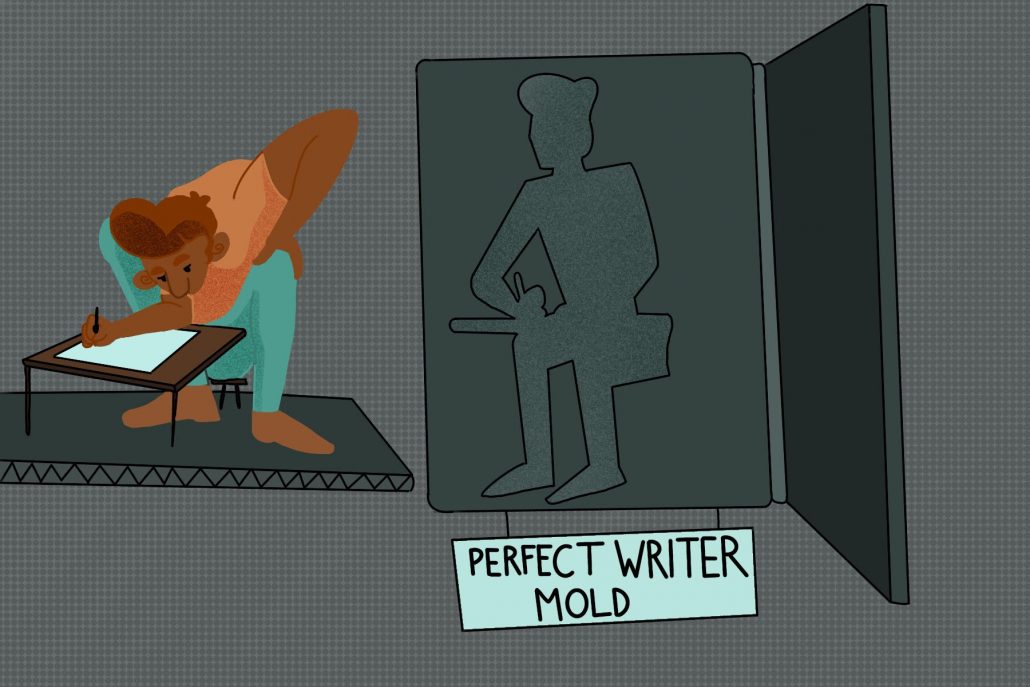OPINION: Freshman writing course only serves to encourage conformity

Despite already facing challenges in the transition from high school to college, USC freshmen often take on difficult courses such as the mandatory — and notorious — “Writing 150: Writing and Critical Reasoning – Thematic Approaches.”
While the course intends to teach new students valuable writing strategies, it does so at the expense of obsession over letter grades and conformity in the writing process. Because these disadvantages tend to overshadow WRIT 150’s stated purpose, the University should restructure the course to help students improve their writing skills in less restrictive ways.
The course currently promises a “rich and rewarding intellectual experience” in its online description. Instead, the rapid pace and stress of the course does not allow for a natural development of writing and reasoning. It takes away from both a new student’s freshman experience at USC and the development of their writing style.
The course description also claims to encourage creativity and a break from the typical five-paragraph essay structure taught in most schools. While it does deviate from this method, it still bases the actual writing process around a rigidity that detracts from true creativity and uniqueness.
Starting with an “invention process” as described by the course book, the writing process shifts to a rough plan, a rough draft and, finally, a final draft. Students, however, communicate their ideas differently, and although this “invention process” may be useful for some, it can be restricting for others.
Additionally, the WRIT 150 course book corrals students into a constrictive mindset regarding essay writing. Even though the writing strategies taught are more nuanced, they often limit students to only one type of “correct” writing when there are numerous methods and approaches to creative and expository writing.
Early grades can often set the tone for a semester, and this is even more impactful during a student’s first few semesters. Getting a low grade in a mandatory course that should follow the bell curve grading expected of mandatory freshman courses is one that may be demoralizing for some students, discouraging them from thinking outside the box. This detracts from an open and creative learning space and promotes undue concern over grades. In some WRIT 150 courses, students often receive a low grade on the first essay, a moderate grade on the second essay and the highest grade on the final essay. This trend passes by word of mouth from students who have already taken the course, encouraging an obsession over an unachievable A in the course.
While there are certainly a few shortcomings with the course structure and ideology, WRIT 150 does offer students benefits not found in any other course at USC. It introduces students to academic writing in a unique environment, teaching them the skills necessary for academic success. Additionally, thematic approaches allow students to explore writing through a topic or subject that they can engage with.
Difficult writing courses are a staple of many universities, but they are often implemented in different ways. Brown University, for example, offers a range of courses that students can take to complete their writing requirement. Traditional writing courses are offered alongside different English, comparative literature and literary arts courses.
Brown’s writing curriculum helps students specialize their writing in conjunction with an upper-level course similar to WRIT 340 at USC. The University of California system, however, allows students to forego their entry-level writing requirement if they score at least 30 on the ACT English section or 680 on the SAT Writing and Language section, according to the UC Irvine course catalogue. USC should consider adopting alternatives that their peer universities are using to help enhance the writing experience and prioritize student growth.
One of the most beneficial changes that should be made to WRIT 150 is to make it a pass/no pass class. This would help students learn academic writing with a clearer focus and give students enough agency to experiment and develop their unique writing styles. Instead of trying to write a paper with the preferences of their instructor in mind, students can feel less pressured and be more creative. Ultimately, WRIT 150 should be about helping students make progress on their writing — not about getting the perfect grade.

